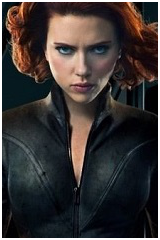THQ Inc. (THQIQ), maker of the “Saints Row” and “Company of Heroes” video-game franchises, failed to obtain approval of a loan to help fund operations and lost its bid for a quick bankruptcy sale.
U.S. Bankruptcy Judge Mary F. Walrath at a hearing yesterday in Wilmington, Delaware, sided with creditors that said the proposed sale process didn’t give potential buyers enough time. Walrath found the video-game maker’s efforts to market the company for sale before bankruptcy weren’t sufficient for her to allow the aggressive sale process.
“I have problems concluding that the pre-petition sale process was fulsome,” Walrath told lawyers at the hearing, noting THQ “did not even put out to the public that it was for sale” until potential buyers signed non-disclosure agreements.
About 10 potential buyers contacted THQ after finding out about the sale from its bankruptcy filing, evidence the marketing “isn’t an adequate substitute for a sales process in bankruptcy,” she said.
THQ, which sought bankruptcy protection Dec. 19 with an agreement to sell virtually all its assets to Clearlake Capital Group LP in a deal valued at about $60 million, was seeking approval to hold a Jan. 9 auction, according to court documents. The company, based in Agoura Hills, California, wanted potential buyers to submit bids by Jan. 8, followed by a Jan. 10 hearing to approve the sale. Creditors want the sale process extended by about three weeks.
‘Mortal Kombat’
Warner Bros. Entertainment Inc., which bought “Mortal Kombat”‘-maker Midway Games Inc. out of bankruptcy in July 2009, would be interested in evaluating THQ’s assets if the sale process is extended, Howard J. Weg, a lawyer representing the company, said at yesterday’s hearing.
Creditors also want bidders to be able to make offers for specific game titles, saying it may produce more value than only selling the company as a whole. “The individual titles may have substantial value” and a requirement to buy the whole company “may depress bids,” Walrath said.
The video-game maker was also seeking approval of a $37.5 million bankruptcy loan at yesterday’s hearing. The loan would need to be paid off by Jan. 15, which the company said supported its quick sale process because it would run out of money and would have no way to pay off the loan without the sale.
THQ exceeded its original cash flow projections for the first couple of weeks in bankruptcy, giving it more time until it runs out of funds, lawyers said at yesterday’s hearing.
‘Need to Talk’
“I am not convinced that we are under the gun to have a sale process by the 15th,” Walrath told lawyers. The judge scheduled a hearing for Jan. 7, telling lawyers, “in the meantime I think the parties need to talk.”
Jeffrey C. Krause, a THQ attorney, said after the hearing that Walrath wants the lawyers to negotiate over the weekend and the company will have to consult with Clearlake, which is providing part of the bankruptcy loan, to determine how they will proceed.
THQ listed assets of $204.8 million and debt of $248.1 million in Chapter 11 documents filed Dec. 19. The company said it was forced to seek court protection after sustaining losses for the past five fiscal years.
Recent losses were tied to its “uDraw” peripheral device for the Nintendo Wii, Sony PlayStation 3 and Microsoft Xbox 360 gaming consoles, which let users produce drawings on their television screens. While the uDraw had early success on the Wii, the PlayStation and Xbox versions “fell far short of expectations,” according to court papers.
“Saints Row,” with more than 11 million units shipped globally, is THQ’s most-successful franchise, according to a May press release. THQ also published the “Darksiders” and “Red Faction” franchises, according to its website.
The video-game maker said it required more time for some titles and had to delay the March introductions of “South Park: The Stick of Truth,” based on the popular adult cartoon show from Matt Stone and Trey Parker; “Company of Heroes 2” and “Metro: Last Light.”
The case is In re THQ Inc., 12-13398, U.S. Bankruptcy Court, District of Delaware (Wilmington).
BLOOMBERG.com
Results 1 to 1 of 1
-
01-06-2013, 03:02 AM #1
 THQ Denied Approval of Bankruptcy Sale Process and Loan
THQ Denied Approval of Bankruptcy Sale Process and Loan












 Reply With Quote
Reply With Quote